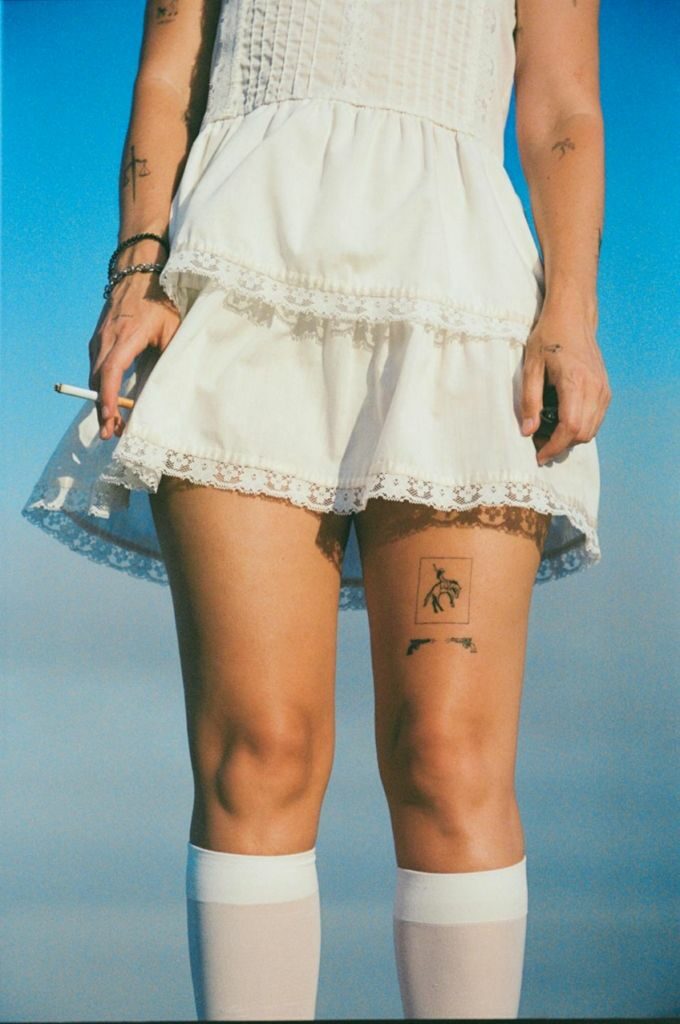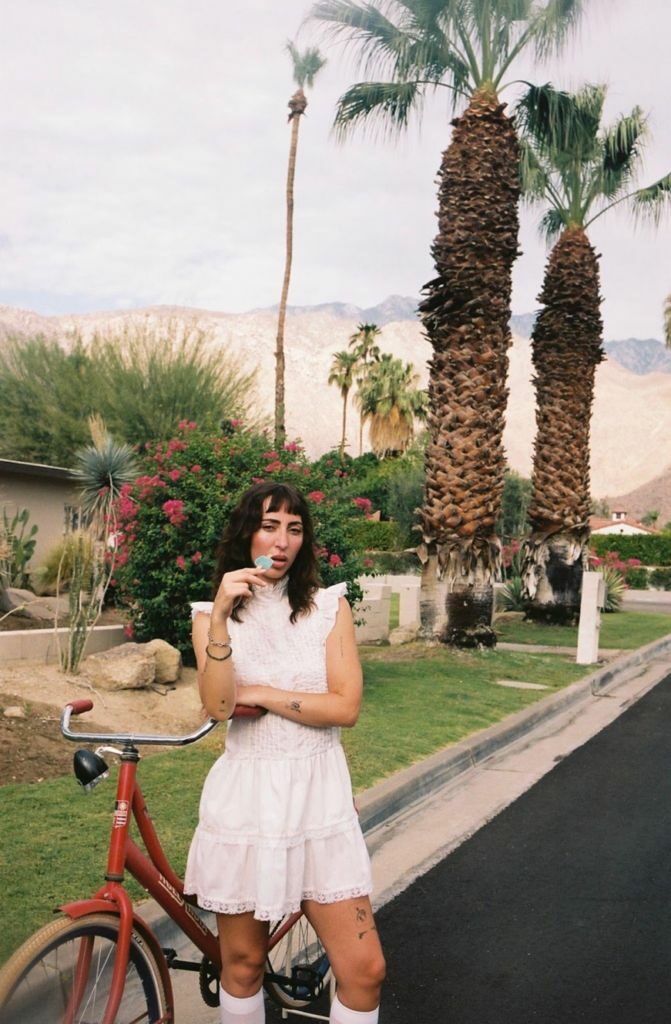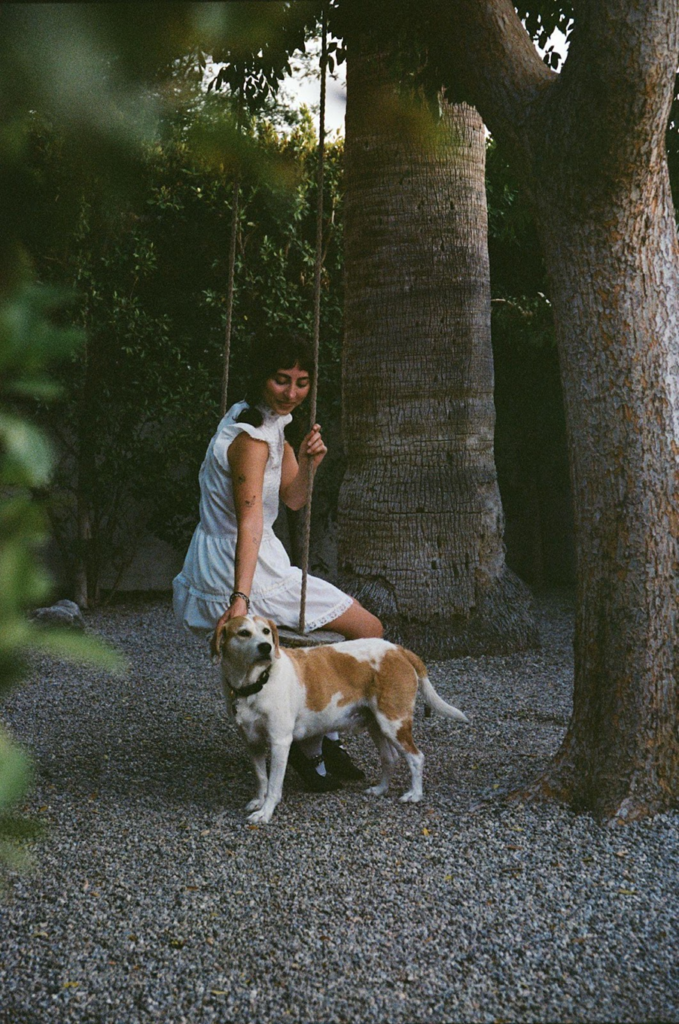Jazzie Young’s Debut is a Masterclass in Emotional Whiplash
In partnership with Purple Bite

The LA songwriter’s ‘Everything Changes’ captures the dizzying highs and crushing lows of growing up in real time
There’s something compelling about witnessing controlled vulnerability — especially when it’s executed with the precision of a skilled artist. On Everything Changes, her commanding debut full-length, Los Angeles songwriter Jazzie Young transcends typical confessional songwriting, crafting instead a meticulous study of human contradiction that functions as both personal excavation and cultural mirror.
Rising Through Methodical Precision
Young’s rise has been methodical and undeniable. Her 2025 single “Waiting On You!” established her as a significant voice in independent music, with the visual earning critical praise from various film festivals. But these tracks were merely preparation for her more ambitious project: a ten-song exploration that reads like a psychological case study of contemporary emotional life.
The constant evolution that takes place within always leads Young back to the never-ending question of “who am I?” she reflects. “The prospect of change is something that I find myself regularly chasing, always searching for around every bend. It’s also the thing that I fear the most, a threat to the comfort I’ve grown to love. That dichotomy is something I find really persistent in my thoughts, and was something I wanted to expand on sonically and lyrically in my debut album.”

Establishing the Thesis
The album wastes no time establishing its thesis, opening with the acclaimed “Waiting On You!” before moving through the disorienting “Light Headed” and the cinematically influenced “Lux” — tracks that showcase Young’s ability to transform psychological fragmentation into aesthetic coherence. Her vocal delivery embodies deliberate contradiction: intimate yet detached, floating within production that creates remarkable tension between spaciousness and claustrophobia.
Working with producers John Velasquez, Grace Freeman, and Campbell Burns, Young has developed sonic landscapes that directly mirror her internal terrain. Contributions from Daywave and drummer Florian Gouello add crucial texture to arrangements that balance nostalgic warmth with contemporary innovation, creating something that feels both familiar and entirely fresh.

Exploring Emotional Depth
“Everything Changes” is an album that explores the emotional journey of what it is to exist and feel deeply,” Young explains. “It follows the ups and downs that I’ve experienced from both externally driven relationships and the relationship that I have with myself.”
This central question threads through every aspect of the album. “It Could Be Good” captures the volatile chemistry of new attraction with documentary precision, while “Speckled Yellow Eyes” elevates self-reflection into something approaching art. The title track confronts the existential fear of growing apart from someone you love, refusing easy comfort in favor of honest recognition that some anxieties are permanent fixtures.

Emotional Pivot Points
The strategically placed “Mr Casual” marks a complete emotional pivot — a shift from vulnerability to defiant self-possession that works as both personal catharsis and cultural commentary. The deliberate contrast serves Young’s larger artistic point: authentic human experience doesn’t follow neat narratives, demanding instead a more complex understanding of who people actually are.
From the grief-soaked “Miss You Already” to the legacy-conscious closer “Family Tree,” the album traces a sophisticated emotional journey that positions Young as both melodic craftsperson and keen cultural observer. It’s a rare debut that manages to be both deeply personal statement and broader social document.

Cultural Impact
Young has emerged as the voice of what might be called “intelligent ambivalence” — that particular state of wanting to change while desperately clinging to what’s familiar. Everything Changes rejects therapeutic easy answers in favor of genuine recognition and solidarity. In an independent music landscape where emotional complexity often takes a backseat to accessibility, Young’s nuanced approach feels both artistically bold and culturally necessary.
